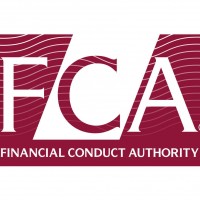
IEL is the first broking firm to be fined for failings relating to the benchmark.
IEL’s misconduct breached the FCA’s Principles for Businesses, involved a significant number of brokers (including two managers) and occurred over a number of years.
Between October 2006 and November 2010, the misconduct included:
• IEL brokers colluding with traders at UBS to manipulate the (Japanese Yen) JPY LIBOR rates for the benefit of the traders. This involved brokers deliberately disseminating incorrect or misleading LIBOR submission levels by:
– emailing skewed suggestions to some Panel Banks as to where they believed the published JPY LIBOR rate would set for a particular day (known as “run-throughs”); and
– requesting certain Panel Banks to make specific JPY LIBOR submissions.
• A broker receiving corrupt bonus payments (at the instigation of one manager) as a reward for his assistance in manipulating the JPY LIBOR rates.
The FCA has taken action in this case in support of its objectives to ensure relevant markets function well and to promote and enhance the integrity of the UK’s financial system.
FCA director of enforcement and financial crime Tracey McDermott said:
“The misconduct in relation to LIBOR has cast a shadow over the financial services industry. The findings we publish today illustrate, once again, individuals within the industry acting with a cavalier disregard both for regulatory obligations and the interests of the markets. IEL’s significant failings in culture and controls allowed that misconduct to flourish and fell far short of our expectations.
“Restoring trust in the industry starts with rooting out and recognising bad practice. True change will however only be achieved when all in the financial services industry accept and deliver on their responsibility to ensure that markets operate with integrity. This is our fourth penalty in relation to LIBOR and our investigations continue. The lessons however go far wider than LIBOR and we will take a very dim view of those who do not learn them.”
The misconduct was widespread. UBS, which was fined in December 2012 for failings connected to LIBOR, made at least 330 written requests to IEL brokers for inappropriate submissions.
UBS also made oral requests, which by their nature are not documented and so cannot be counted precisely.
Three brokers (including one manager) were central to the collusion, although at least seven other individuals (including another manager) spanning three desks also participated.
IEL’s risk management systems and controls were inadequate to monitor and oversee the relevant broking activity. There was no effective oversight of the brokers involved, which meant that they were able to conceal their misconduct. From October 2006 to November 2010, IEL did not audit the desk at the centre of the misconduct (the JPY Derivatives Desk).
While IEL had certain policies and procedures in place to govern individual broker behaviour, they were insufficient to deal with collusion between brokers and their clients. Managers were responsible for monitoring day-to-day misconduct, but this proved ineffective as they failed to report misconduct or were complicit in it.
The brokers’ misconduct was exacerbated by a poor compliance culture within IEL which was a result of its heavy focus on revenue at the expense of regulatory requirements.
IEL’s inadequate systems, controls, supervision and monitoring meant that the brokers’ misconduct went undetected and continued for several years.
IEL agreed to settle at an early stage of the investigation and therefore qualified for a 30% discount under the FCA’s settlement discount scheme.
Without the discount, the fine would have been £20m.
The FCA said this was a significant cross-border investigation and thanked the US Commodity Futures Trading Commission (CFTC) for their cooperation. IEL also agreed to settle an action brought by the CFTC, who imposed a financial penalty of $65m (£40,443,141).
















